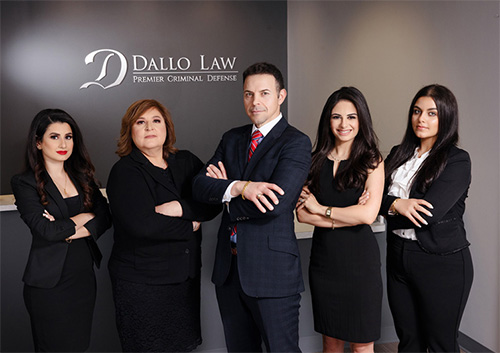Many states prosecute “vehicular manslaughter” as a separate criminal charge. In these states, an individual can generally be convicted of vehicular manslaughter if a prosecutor can prove beyond a reasonable doubt that a defendant caused the death of another person by driving in an unlawful or particularly negligent manner.
The State of Michigan doesn’t have a distinct vehicular manslaughter statute. Instead, killing another person while driving a motor vehicle may be prosecuted under statutes similar – but not identical – to those used in other states to hold motorists accountable for intentional and unintentional vehicular manslaughter.
Michigan Vehicular Manslaughter Lawyer
If you have been arrested for vehicular manslaughter in Michigan, contact Dallo Law, P.C. to obtain competent legal representation. Your freedom depends on your defense attorney’s actions early in the case and the strategy he or she uses throughout the investigation and prosecution. Attorney J. Dallo at Dallo Law, P.C. and his legal team understand the complexity of vehicular manslaughter cases, and he knows how to defend your rights.
You have the right to an attorney who will use every resource available to fight for you. Attorney Dallo is prepared to obtain the best possible outcome for your case. Reach out to Dallo Law, P.C. at (248) 283-7000 to schedule your first consultation.
Our firm accepts clients throughout the greater Oakland County and Macomb County area including Pontiac, Troy, Waterford Township, Oakland Charter Township, Royal Oak, Clarkston, Southfield, and Bloomfield Hills.
Information Center
- Elements of Michigan’s Vehicular Manslaughter Statute
- Penalties for Vehicular Manslaughter in Michigan
- Statute Of Limitations
- Defenses for Michigan’s Vehicular Manslaughter Statute
- Additional Resources
Elements of Michigan’s Vehicular Manslaughter Statute
After the repeal of Michigan’s negligent homicide statute in 2009, two distinct statutes were passed to address the crime of killing another while operating a motor vehicle. These statutes formally made “reckless driving causing death” and “moving violation causing death” crimes under the law.
Reckless Driving Causing Death
The act of causing death due to reckless driving is classified as a felony in Michigan. For conviction, the prosecution must prove – beyond a reasonable doubt – that a defendant operated a vehicle (on a highway or other area open to the general public) in ways that demonstrated a willful or wanton disregard for the safety of others or property. A prosecutor must also prove that this conduct led to the death of another.
When this kind of reckless conduct does not result in the death of another person, it is classified as a misdemeanor and is punishable by a maximum of 93 days in jail, up to a $500 fine, or both. Punishments associated with reckless driving that results in the death of another are far more severe.
Moving Violation Causing Death
When a motorist commits a moving violation, and that conduct is the proximate cause of the death of another person, the motorist can be charged with a “moving violation causing death” offense. A moving violation is defined as conducting oneself in a way prohibited under state or local ordinances involving the operation of a motor vehicle and that is ordinarily punishable by the assessment of a fine.
Penalties for Vehicular Manslaughter in Michigan
As a “reckless driving causing death” offense is more egregious than a “moving violation causing death” offense, the penalties associated with conviction for the former are more severe than those associated with a conviction for the latter.
Reckless Driving Causing Death
If an individual is convicted of reckless driving causing death, they’ll face a maximum term of imprisonment lasting no more than 15 years. This is a maximum sentence, not a minimum one, which means the court is empowered to hand down a less lengthy sentence. Additionally, anyone convicted of this offense will be ordered to pay a fine of at least $2,500 but not more than $10,000. Finally, the vehicle involved in the killing may be forfeited at the court’s discretion.
Moving Violation Causing Death
If an individual is convicted of a moving violation causing death offense, they may be sentenced to a term of imprisonment not to exceed one year, a fine of up to $2,000, or both at the court’s discretion. Because there is no mandatory minimum sentence associated with this offense, the court can impose up to these maximums but may opt for a lighter sentence if doing so seems just.
Statute Of Limitations
The statute of limitations for both “reckless driving causing death” and “moving violation causing death” is six years in Michigan. This is true even though one offense is classified as a felony and the other as a misdemeanor. The statute of limitations period means that the suspect can no longer be properly charged with these crimes if prosecutors don’t file charges against a motorist suspected of causing another’s death within six years of that victim’s passing.
Defenses for Michigan’s Vehicular Manslaughter Statute
Criminal defense attorneys often focus on creating reasonable doubt in the minds of jury members that their client’s conduct met the standards outlined in every single element of a particular offense. Casting reasonable doubt on even one element of a criminal charge should lead a jury to acquit a defendant.
In a moving violation case, an attorney must successfully argue that the defendant didn’t commit a moving violation or that the moving violation wasn’t a proximate cause of the victim’s death. In a reckless driving case, an attorney would need to cast reasonable doubt on either the connection between the defendant’s conduct and the victim’s death or the allegation that the defendant was operating their vehicle with willful or wanton disregard for the safety of others or property.
Additionally, criminal defense attorneys may employ alternative or simultaneous defense strategies to protect a client’s interests. For example, they may argue that a motorist did commit a moving violation that served as the proximate cause of another’s death, but they did so because they were dealing with an unforeseen and sudden emergency and were acting reasonably under the circumstances.
Say that a parent’s toddler had started choking in the backseat, and they had pulled over to the side of the road without signaling because they had to act to save their baby’s life immediately and couldn’t wait to pause, signal properly, and then move. If their actions somehow caused another traveler’s death, they may be able to avoid accountability for that unforeseen circumstance because their actions were reasonable under the emergency circumstances.
Additional Resources
Cases, Opinions & Orders | Michigan Courts – Visit the official website of Michigan’s judicial branch to access current orders, review cases, and research court opinions.
Reckless Driving Causing Death or Serious Impairment of a Body Function | Michigan Model Criminal Jury Instructions – Visit the official website of Michigan’s state court system to reference the exact language used to instruct members of a jury as to whether they should convict or acquit an individual who has been charged with the State’s closest equivalent to vehicular manslaughter.
Bloomfield Hills Vehicular Manslaughter Attorney | Oakland County, MI
If you have been arrested for vehicular manslaughter, your future and freedom are at stake. Any homicide charge in the State of Michigan is prosecuted harshly and if convicted, you will face years of imprisonment and stiff fines. In a situation such as this, you need a competent criminal defense attorney that can fight for the justice you deserve. Turn to Dallo Law, P.C. for skilled legal guidance.
Attorney J. Dallo at Dallo Law, P.C. is uniquely qualified to represent you in any case of murder. With our firm representing you, you will have the best possible chance at minimizing the penalties if not beating the criminal charges altogether. Call us now at (561) 557-8686 to set up your first consultation free.
Dallo Law, P.C. has offices located in Bloomfield Hills, and accepts clients throughout the greater Oakland County and Macomb County area.









